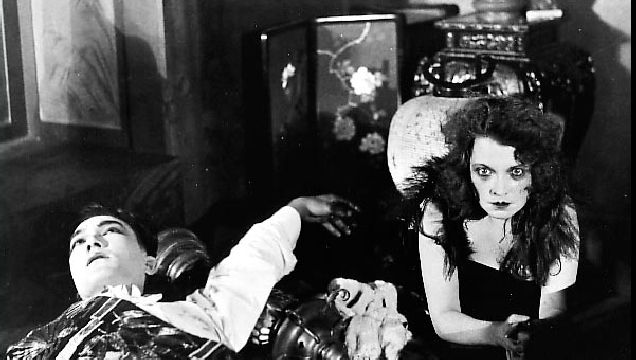The Cheat (1915) 

The Cheat (1915)
Director: Cecil B. DeMille
Cast: Fannie Ward, Sessue Hayakawa, Jack Dean
Synopsis: A venal, spoiled stockbroker’s wife impulsively embezzles $10,000 from the charity she chairs and desperately turns to a Burmese ivory trader to replace the stolen money.
Despite (or perhaps because of…) the racist perspective of The Cheat, which depicts socialite Edith Hardy (Fannie Ward) as the helpless victim of a cruel and sadistic Japanese playboy (Sessue Hayakawa – The Bridge on the River Kwai), it’s difficult to drum up much sympathy for our wretched heroine. She leads the softest of lives as the pampered wife of a hard-working businessman (Jack Dean, Ward’s real-life husband), but when he ties up all his cash in a potentially lucrative stock market deal she refuses to temporarily curtail her spending on new frocks for social occasions until the deal goes through. When hubbie finally puts his foot down, Edith decides to ‘borrow’ money that was entrusted to her as the treasurer of the Red Cross society. When the society then needs the money before her husband’s deal has paid off, Edith has no choice but to make a deal of her own with the oily Hishuru (whose name and nationality, following objections from the Japanese community, was changed to the Burmese Arakau for the 1918 re-release).
Although it’s never specifically stated, we’re left to assume that Edith essentially prostitutes herself to her co-National friend in return for that divine party frock she absolutely must have for the Red Cross social event of the year. Not only that, she somehow persuades Hishuru/Arakau to part with the cash before she puts out, so when her husband’s deal pays out enough to make them rich for life, she gives him some old flannel about losing $10,000 at poker and trots off with the money he duly gives her with the intention of paying back the money to Hishuru/Arakau, thus foregoing the fate worse than death that is the touch of a yellow man.
Now where I come from, a deal’s a deal, and you don’t try wriggling out of it simply because your circumstances have suddenly improved before you’ve fulfilled your end of the bargain. I can’t help thinking Mrs Hardy might have felt just a little bit put out if Hishuru/Arakau had refused to pay up once she’d allowed him to lay his grubby yellow hands on her trembling white skin, so to assume he isn’t going to be a little upset when she returns the money is both naïve and stupid in the extreme – although I suppose it is at least in keeping with her character. While branding the mark of the cheat on her shoulder might be taking things a bit far, I can’t help feeling that he’s sort of justified in expecting to receive at least some kind of recompense, if you know what I mean.
The Cheat is the sort of semi-hysterical melodrama that gives the silent cinema a bad name, even though it’s undeniably entertaining in a trashy sort of way. Fannie Ward’s stage origins are evident in a truly awful performance in which she seems to assume her entire audience is crammed into the back row of a vast auditorium, but Sessue Hayakawa is agreeably understated as the urbane yet evil Hishuru/Arakau. The racism inherent in the way he is depicted will be offensive to those who choose to use modern sensibilities to judge a past generation’s movies, but most grown-ups should be able to see beyond that. The technical quality of the film, directed by Cecil B. DeMille, who did a lot of this kind of thing before getting big-scale religion, is surprisingly good for a film of this era, and the running time of under an hour means that even Fannie Ward’s histrionics are only just beginning to wear thin before the whole thing is over.
(Reviewed 24th April 2015)
httpv://www.youtube.com/watch?v=HZQwL1QUpgM

